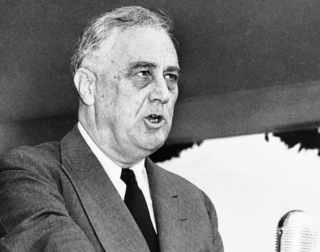One of the stranger features of contemporary political writing is what I'd call the “one true path” fallacy: the notion that, rather than making progress on all fronts where possible, one and only one course must guide all actions. Attendant with this is the concept that straying from that one true path will irreparably harm the cause more than it will help.
This is ahistorical. The New Deal was a time of bold experimentation where Franklin Roosevelt pursued unilateral actions, collaborations with Congress, and veiled threats at a judiciary that had curtailed his agenda. He tried (unsuccessfully) picking off members of Congress who voted against his preferences, and he responded to grassroots activists demanding old-age insurance. He pursued immediate and emergency actions like the bank holiday and long-lasting legislative ones like the Securities Exchange Act of 1934. There was no self-censorship, no fear that executive authority would harm the legislative agenda or the fight in the streets. A Depression was on, and progress was progress.
Read Full Article »



